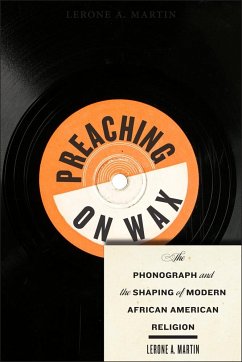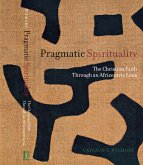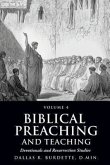"From 1925 to 1941, approximately one hundred African American clergymen teamed up with leading record labels such as Columbia, Paramount, Victor-RCA to record and sell their sermons on wax. While white clerics of the era, such as Aimee Semple McPherson and Charles Fuller, became religious entrepreneurs and celebrities through their pioneering use of radio, black clergy were largely marginalized from radio. Instead, they relied on other means to get their message out, teaming up with corporate titans of the phonograph industry to package and distribute their old-time gospel messages across the country. Their nationally marketed folk sermons received an enthusiastic welcome by consumers, at times even outselling top billing jazz and blues artists such as Bessie Smith and Ma Rainey. These phonograph preachers significantly shaped the development of black religion during the interwar period, playing a crucial role in establishing the contemporary religious practices of commodification, broadcasting, and celebrity. Yet, the fame and reach of these nationwide media ministries came at a price, as phonograph preachers became subject to the principles of corporate America. In Preaching on Wax, Lerone A. Martin offers the first full-length account of the oft-overlooked religious history of the phonograph industry. He explains why a critical mass of African American ministers teamed up with the major phonograph labels of the day, how and why black consumers eagerly purchased their religious records, and how this phonograph religion significantly contributed to the shaping of modern African American Christianity"--








